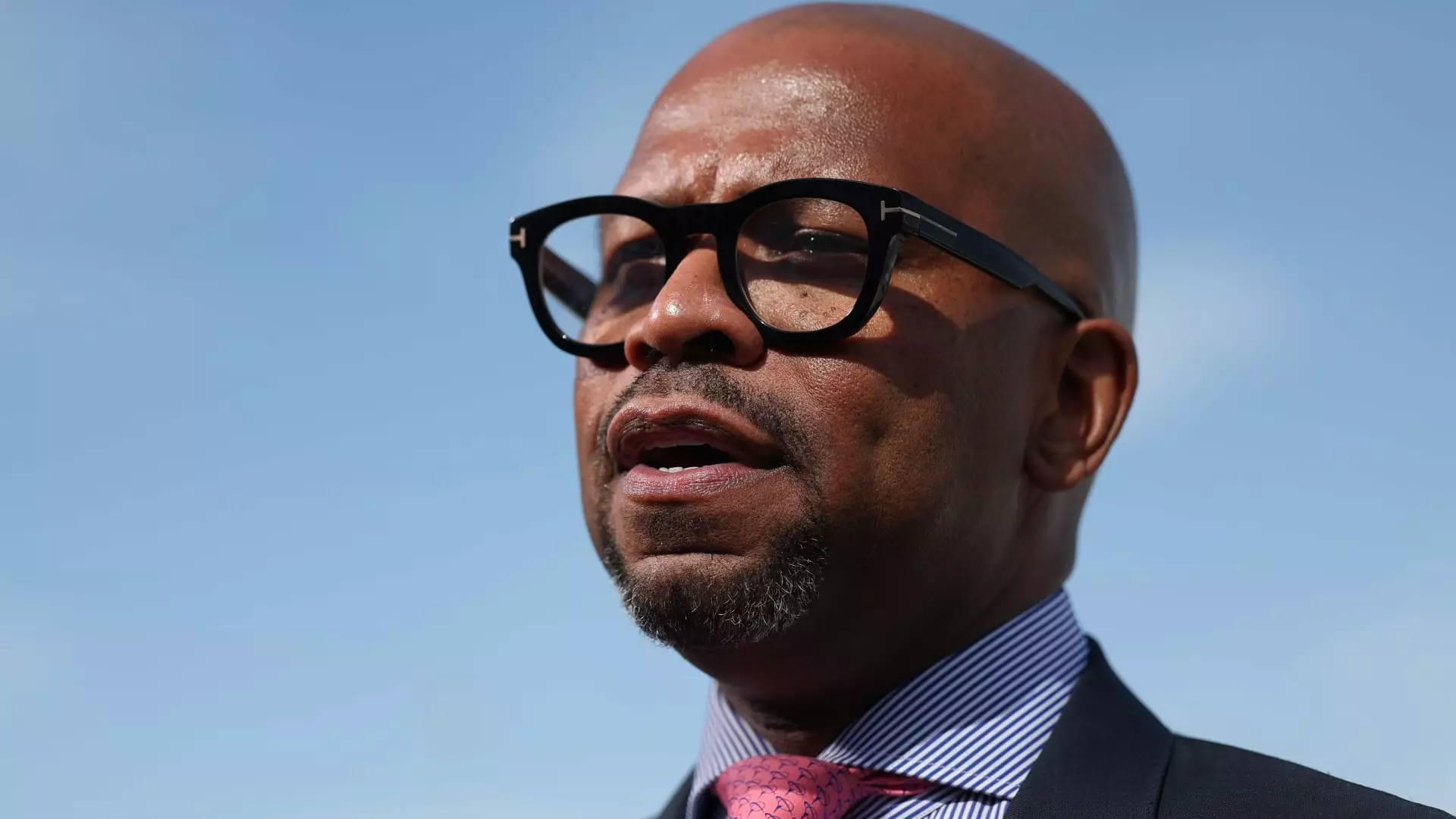In a significant move reflecting the evolving landscape of Boeing’s defense division, CEO Kelly Ortberg announced the immediate departure of Ted Colbert, the unit’s head. This transition, made shortly after Ortberg took the helm in early August, underscores Boeing’s urgent need for reformation within its defense, space, and security sector. As Ortberg highlighted in a memo to staff, the essential focus now lies in regaining customer trust and fulfilling the stringent expectations associated with their critical global missions. Such changes signal a moment of reckoning for a company that has recently faced a multitude of challenges.
The departure of Colbert, who dedicated 15 years to Boeing, raises questions about the internal and external factors leading to his exit. Ortberg explicitly stated that improving operational performance is imperative. The defense arm of Boeing has been a vital contributor, accounting for nearly 40% of the corporation’s revenue in the first half of the year. However, this financial success has been overshadowed by ongoing production issues and significant cost overruns. This precarious situation emphasizes the need for decisive leadership and strategic realignment to navigate these challenges.
Steve Parker, the Chief Operating Officer of Boeing’s defense unit, has stepped in as the interim head following Colbert’s departure. This interim leadership may provide a necessary stabilizing force as the company embarks on the search for a permanent replacement. Parker’s existing familiarity with the unit’s operations positions him to address many of the inherent challenges that have plagued the defense sector, including production delays and quality control issues that have marred the launch of key platforms like the new Air Force One 747s.
While addressing terrestrial concerns, Boeing’s reputation in the aerospace sector is also under scrutiny. The company has encountered significant setbacks with its Starliner spacecraft, which returned to Earth without NASA astronauts following a June mission to the International Space Station. Instead, NASA opted for SpaceX’s Crew-9 vehicle for their return, marking a potential setback for Boeing’s role in commercial spaceflights. This incident not only strains relationships with NASA but also reflects broader implications for Boeing’s competitiveness against emerging private industry players.
As the defense and aerospace giant reevaluates its leadership and operational strategies, the focus will remain on restoring confidence among stakeholders and customers alike. Ortberg’s commitment to enhancing performance and accountability echoes a larger narrative of resilience and adaptation within the aerospace industry. While the transitional period may prove challenging, it is also ripe with opportunities for growth and innovation. Boeing must leverage this moment to not only address existing dilemmas but to redefine its future trajectory in a fast-evolving global market. The road ahead may be fraught with difficulties, but a renewed focus on excellence could pave the way for Boeing’s resurgence.


Leave a Reply